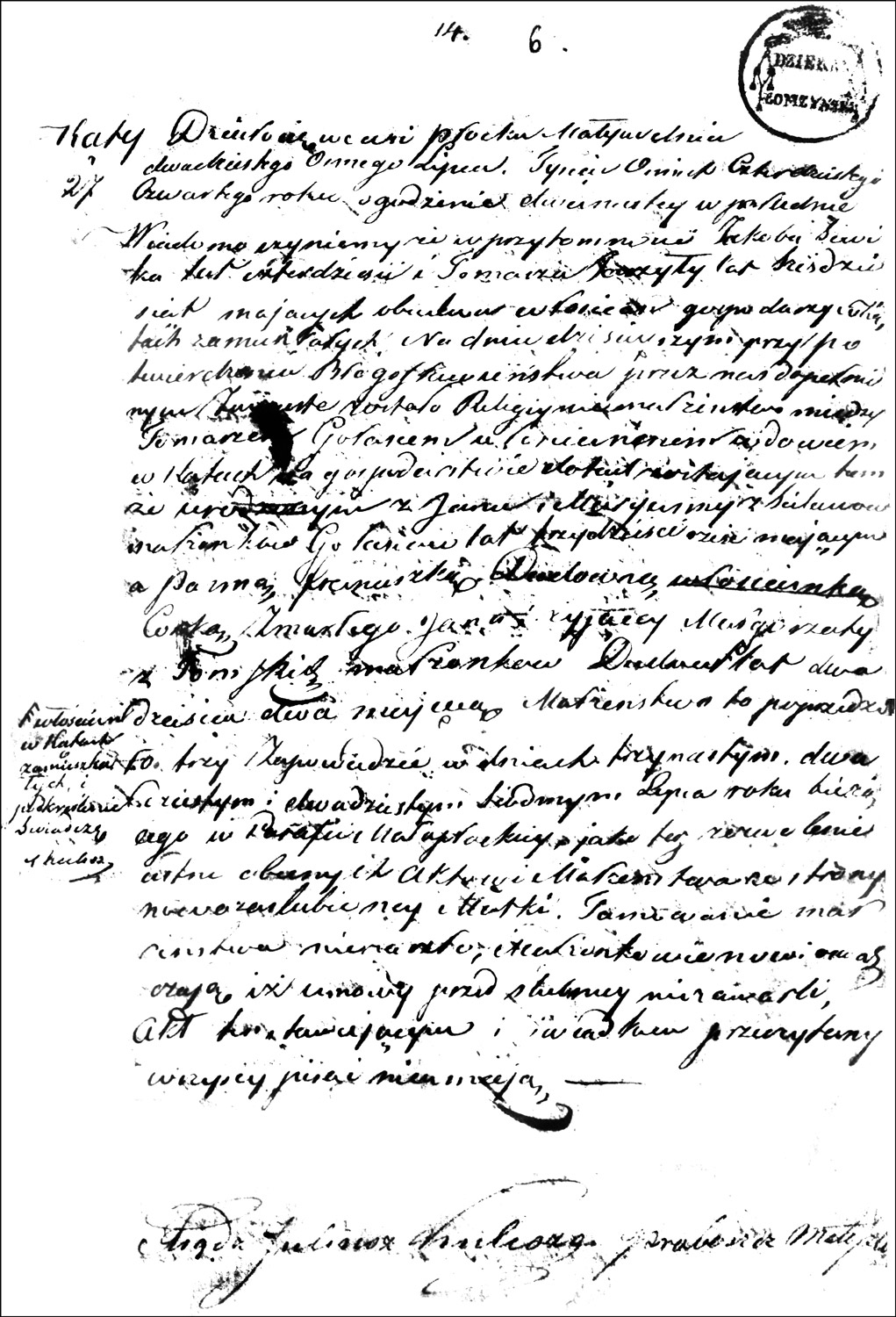Tomasz Gołaś, son of Jan Gołaś and Maryanna Sielun, and Franciszka Duda, daughter of the Jan Duda and Małgorzata Tomska, were married in the parish church in Mały Płock, Kolno Powiat, Łomża Gubernia, Congress Kingdom of Poland on 28 July 1844.
The Marriage Record of Tomasz Gołaś and Franciszka Duda – 1844
SOURCE: Parafia pw. Znalezienia Krzyża Św. (Mały Płock, Kolno Powiat, Łomża Gubernia, Congress Kingdom of Poland), “ Akta zaślubionych 1847 [Records of Marriages 1847],” folio 66/57 verso, entry 20, Walenty Dymek and Katarzyna née Kołdys Lemańska, 07 February 1847; filmed as Księgi metrykalne, 1771-1863; FHL INTL microfilm 0,948,384.
Click on the image above to view a higher resolution image. Click on the link for a PDF copy of the Marriage Record of Tomasz Gołaś and Franciszka Duda. Translated from the Polish, the record reads:
Kąty 27
This happened in the village of Mały Płock on the twenty-eighth day of July in the year one-thousand eight-hundred forty-four at the hour of twelve noon.
We make it known that in the presence of witnesses Jakób Siwik, age forty, and Tomasz Jerzyła, age sixty, both peasant farmers residing in Katy, on this day, with a confirmed blessing imparted by Us, a religious marriage was contracted between Tomasz Gołaś, a widowed peasant residing until now on a farm in Kąty, born there of the married couple Jan and Maryanna née Sielun Gołaś, thirty-six years of age, and the young girl, Franciszka Duda, a peasant, daughter of the married couple the deceased Jan and the living Małgorzata née Tomska Dymek, peasants residing in Kąty, twenty-two years of age . This wedding was preceded by three readings of the banns on the thirteenth, twentieth, and twenty-seventh days of July of this same year in the parish of Mały Płock, also with the oral consent of those present for the marriage record and of the mother on the side of the bride. No impediment to the marriage arose. The newlyweds stated that they had made no prenuptial agreement. This document was read aloud to the declarants and witnesses all of whom do not know how to write.The Reverend Juliusz Kulisz, Pastor of Mały Płock
The scribe omitted the phrase “peasants residing in Kąty” from the text and added it in the margin . The marginal notation further states “and underline shown, J Kulisz”.
Copyright © 2011 by Stephen J. Danko




